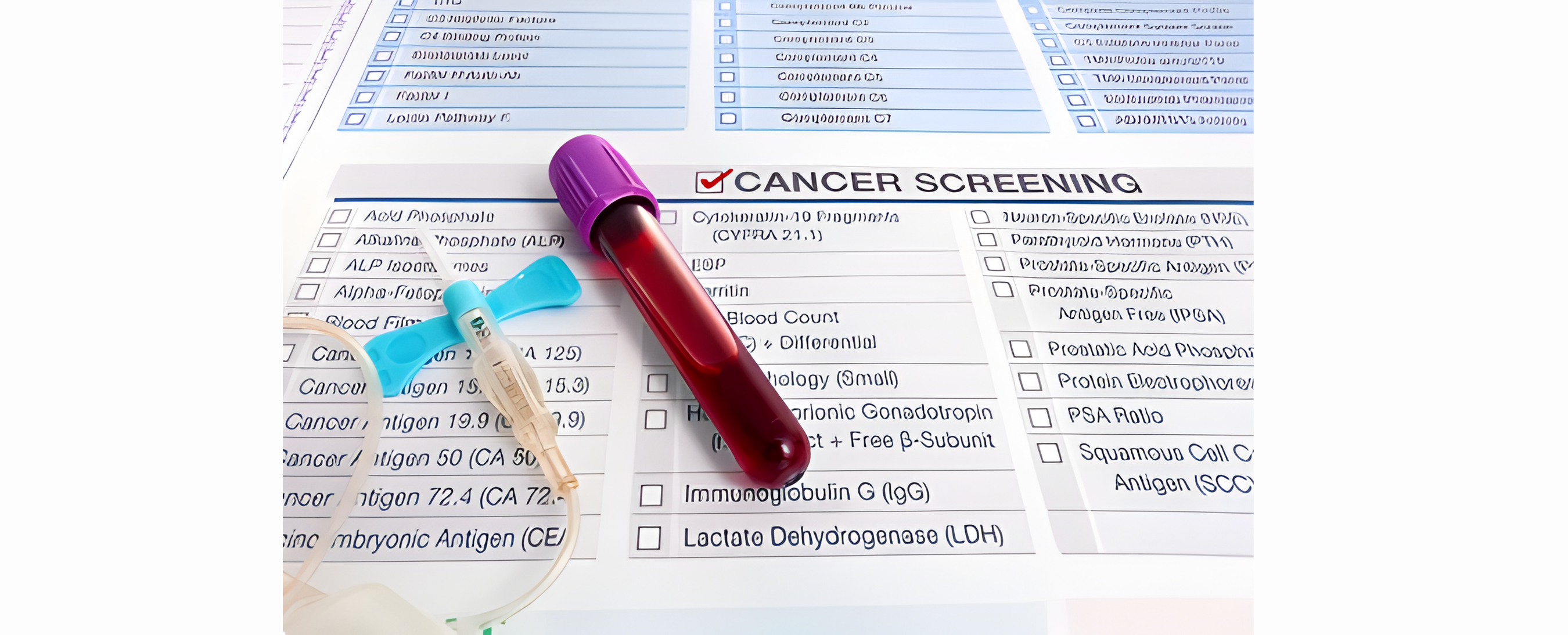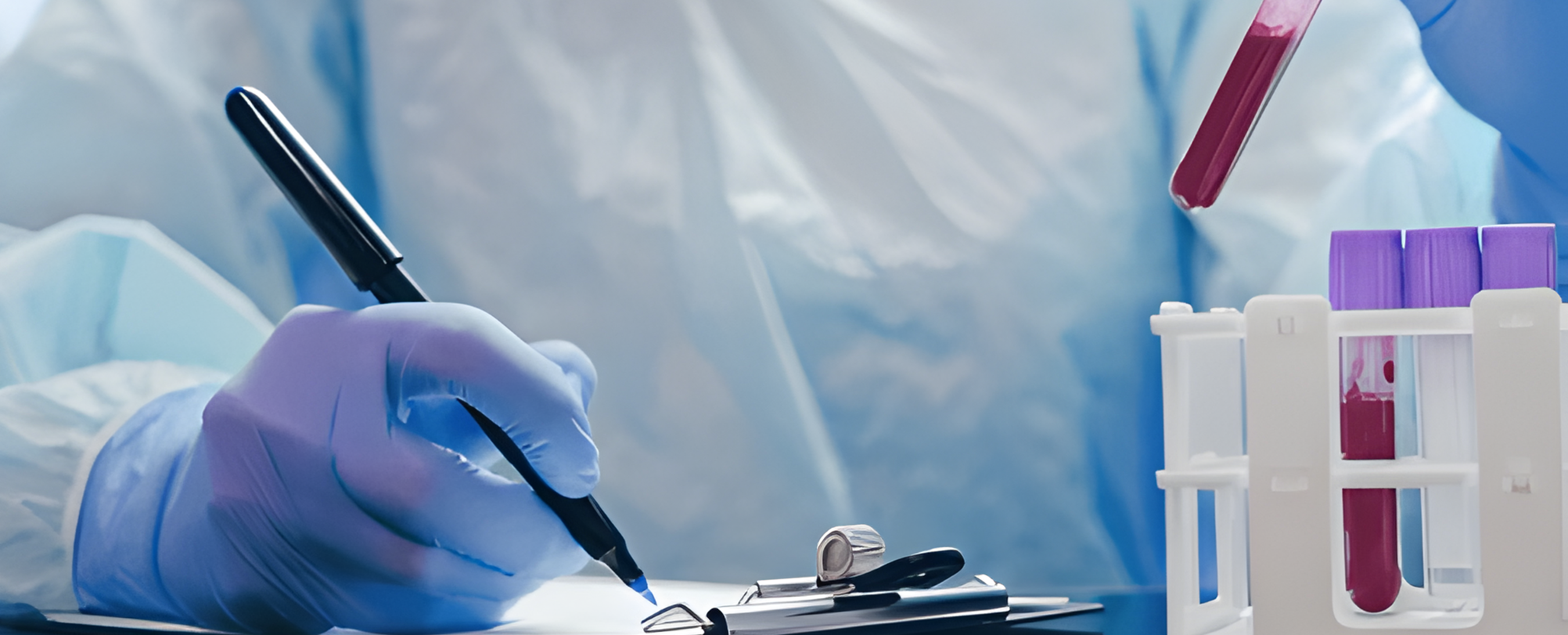Comprehensive Cancer Marker Testing in Delhi NCR: Early Detection and Prevention
Published by LabBuddy Team | 10 minutes read

Cancer Landscape in Delhi NCR: Understanding Early Detection
Cancer has emerged as a significant health challenge in Delhi NCR, driven by complex urban lifestyle factors, environmental challenges, and genetic predispositions. Early detection through comprehensive cancer marker testing has become a critical strategy for proactive health management.
Delhi NCR Cancer Realities:
- Rising cancer incidence rates
- Increasing cases among younger populations
- Environmental pollution impact
- Lifestyle-related cancer risks
- Limited early detection awareness
- Growing need for preventive screening
Understanding Cancer Marker Testing

Cancer marker tests detect specific substances produced by cancer cells or generated by the body in response to cancer, providing crucial early detection insights.
Key Cancer Marker Tests
1. PSA (Prostate-Specific Antigen) Screening for prostate cancer in men.
Normal Range: 0-4 ng/mL
Significance:
- Early prostate cancer detection
- Monitoring prostate health
- Differentiating benign from malignant conditions
2. CA-125 Ovarian cancer marker for women.
Normal Range: Less than 35 U/mL
Diagnostic Value:
- Ovarian cancer screening
- Monitoring treatment response
- Tracking potential recurrence
3. CEA (Carcinoembryonic Antigen) General cancer marker for multiple cancer types.
Normal Range: Less than 5 ng/mL
Clinical Importance:
- Colorectal cancer monitoring
- Lung and breast cancer tracking
- Treatment response evaluation
4. CA 15-3 Breast cancer marker.
Normal Range: Less than 30 U/mL
Health Implications:
- Breast cancer screening
- Monitoring treatment effectiveness
- Detecting potential recurrence
5. AFP (Alpha-Fetoprotein) Liver cancer and germ cell tumor marker.
Normal Range: Less than 10 ng/mL
Diagnostic Significance:
- Liver cancer detection
- Testicular and ovarian cancer screening
- Monitoring treatment progress

Urban Cancer Risk Factors
Environmental Challenges
- Air pollution carcinogen exposure
- Water contamination risks
- Chemical pollutant interactions
- Chronic environmental stress
- Reduced air quality impact
Lifestyle Contributors
- Sedentary work environments
- Chronic stress
- Processed food consumption
- Limited physical activity
- Irregular sleep patterns
- Excessive alcohol and tobacco use

Who Should Consider Cancer Marker Testing
High-Risk Groups
- Individuals with family cancer history
- People over 40
- Smokers and tobacco users
- Chronic alcohol consumers
- Obesity
- Chronic inflammatory conditions
- Genetic predisposition
Occupational Risk Categories
- Chemical industry workers
- Healthcare professionals
- Night shift workers
- High-stress professional environments

Preparing for Cancer Marker Tests
Pre-Test Considerations
- Follow specific test preparation guidelines
- Inform doctor about medical history
- Disclose current medications
- Manage stress levels
- Stay hydrated
- Avoid unnecessary supplements
Factors Affecting Results
- Current health conditions
- Medication interactions
- Stress levels
- Recent infections
- Inflammatory conditions

Understanding Test Results
Result Interpretation
- Normal Levels: No immediate cancer indication
- Elevated Markers: Requires further investigation
- Persistent Elevation: Potential cancer risk
Comprehensive Assessment
- Individual marker levels
- Correlation with clinical symptoms
- Additional diagnostic tests
- Professional medical consultation

Comprehensive Cancer Prevention Strategies
Lifestyle Modifications
- Regular physical activity
- Balanced nutrition
- Stress management techniques
- Adequate sleep
- Limit alcohol and tobacco
- Regular health screenings
Dietary Recommendations
- Antioxidant-rich foods
- Plant-based diet
- Reduced processed food intake
- Whole grain consumption
- Increased vegetable and fruit intake

Technology in Cancer Detection
Advanced Monitoring Tools
- AI-powered risk prediction
- Genetic cancer risk profiling
- Liquid biopsy technologies
- Comprehensive health tracking
- Personalized screening recommendations

Cost and Accessibility
Testing Costs in Delhi NCR
- Basic Cancer Marker Panel: ₹3,000-₹6,000
- Comprehensive Cancer Screening: ₹6,000-₹15,000
- Advanced Genetic Cancer Risk Assessment: ₹15,000-₹30,000
Insurance and Corporate Coverage
- Corporate wellness programs
- Preventive health packages
- Select health insurance plans
- Government health initiatives

LabBuddy's Cancer Marker Testing Approach
Comprehensive Services
- 250+ labs across Delhi NCR
- Home collection options
- Quick booking
- Transparent pricing
- Digital report delivery
- Expert consultation support
- Personalized risk assessment

Emerging Research and Future Trends
Precision Oncology
- Genetic cancer risk profiling
- Personalized treatment strategies
- Advanced molecular diagnostics
- Immunotherapy developments
Digital Health Integration
- AI cancer risk prediction
- Comprehensive health tracking
- Personalized screening recommendations
- Seamless healthcare experience
Psychological Aspects of Cancer Screening
Managing Anxiety
- Professional counseling support
- Comprehensive result explanation
- Family support strategies
- Mental health resources
- Positive coping mechanisms
Empowerment Through Knowledge
- Understanding test limitations
- Realistic risk assessment
- Proactive health management
- Continuous learning

Conclusion
Cancer marker testing represents a critical tool in proactive health management within Delhi NCR's complex urban environment. By understanding your unique cancer risk profile, you can take targeted preventive measures, make informed lifestyle choices, and potentially detect potential issues at their earliest, most treatable stages.
Regular testing, comprehensive understanding, and personalized risk management are key to navigating the cancer landscape in our rapidly evolving urban ecosystem.
Remember, cancer screening is a journey of empowerment. Always consult healthcare professionals for personalized medical advice, comprehensive interpretation of test results, and individualized prevention strategies.
Your health is your most valuable asset – invest in understanding, prevention, and proactive management.



